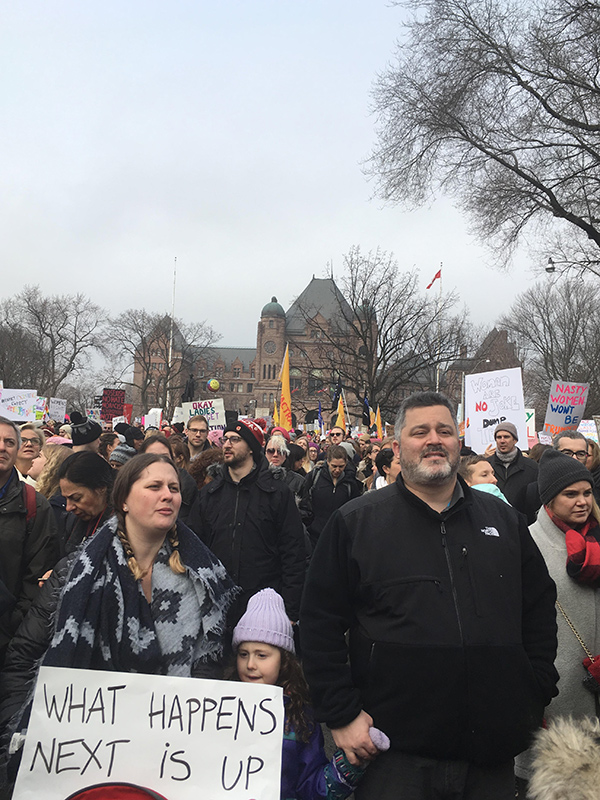Finding the Form with Laura Rock Gaughan
By Laura Rock Gaughan
“Finding the right balance between fact and feeling was difficult for me and slowed the writing.”
The link here is a flashier online version of the Moodys Gartner Tax Law ad that so fascinated me when I encountered it for the first time in my morning newspaper a few years ago. The one I clipped out of the paper had a sober, business-section vibe, devoid of colour. Now, the branding is brighter and more sophisticated. The pitch has been overlaid with a divorce schtick (“Take my husband. Please.”), as if to reassure the audience that people leave their spouses all the time; a country is no different. If you click the Upcoming Renunciation Seminars button, you can register for a seminar in seven Canadian cities and there’s one in Europe, too. The market for ditching US citizenship is still growing, apparently. I still find it hard to look away.
I knew immediately that I would attend the seminar, and not as a prospective client. I wanted to understand how de-Americanization services were being sold, and I wanted to meet the target market. Who were these people, the customer-citizens? Were they conflicted, at all, or just hoping to break free from the onerous rules and regs of US tax policy?
I wish I could say that I went to the seminar and then dashed off an essay called “Post-American: Variations”, but writing doesn’t work that way for me. While the seminar sparked the essay, more thinking and many drafts had to happen before it arrived at its final shape: a collage bringing together aspects of Canadian and American citizenship with nationalism, tax policy, border crossings, federal elections, human migration, a visit to the US consulate, a protest march, and a look back at a short story I’d been forced to read in high-school English class.

The fragmentary form was an instinct, the one element of the piece that didn’t change. It enabled me to glue together disparate experiences, to include new-Canadian and post-American material spanning decades. I had been reading essays and came across one styled as “variations”, a form I liked. Variations suggested mixed feelings—I’m the queen of mixed feelings—and the examination of a problem from multiple vantage points.
Finding the right balance between fact and feeling was difficult for me and slowed the writing. Early drafts read like a research report, with too many statistics and not enough people. There were a lot of footnotes, which I used both to track sources and to elaborate on the financial contortions imposed by the Foreign Account Tax Compliance Act (FATCA) on US citizens around the world. Some facts were needed, of course, but no one wants to read a story about tax policy. (Well, maybe the guys at Moodys do.)
As I was simplifying and cutting, I worried about how much information to let go. Even now, I want to tell you that it’s not only FATCA that’s so awful, but also the discriminatory requirement to file the Report of Foreign Bank and Financial Accounts (the FBAR form, which, happily, we can read as FUBAR); that in addition to citizenship renunciation there’s an option called relinquishment; that two of my dual-citizen children are unable to vote absentee because they were born in Canada, and Maryland, my last state of residence, won’t allow them to register, so they face a life of taxation without representation; that, while it might seem like anyone with a pulse can acquire firearms for their personal arsenal in the United States, in fact, people who have renounced US citizenship are specifically prohibited from buying guns. The details have details. Not all of them served this essay, but perhaps they’ll find their way into another one.
My hope, throughout the revision process, was to create an essay that resonated with identities and connections. I worked toward a narrative fuelled by anger and wonder, both. How absurd it is that a government asserts financial claims to its far-away citizens while treating them so badly, without regard for their wellbeing. How terrible, how morally bankrupt, is the regime that denies asylum-seekers entry in violation of international law, that separates children from their families and cages them in concentration camps. How strange, how strange, is our life of branded loyalties, the arbitrary categories that unite and divide us.

Laura Rock Gaughan is the author of Motherish, a short story collection published in 2018. She lives in Lakefield, Ontario with her family.
Header by Chris Lawton on Unsplash. Photo courtesy of Laura Rock Gaughan.

